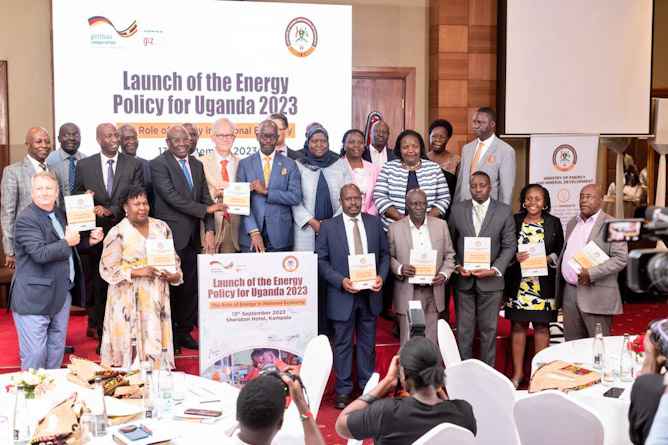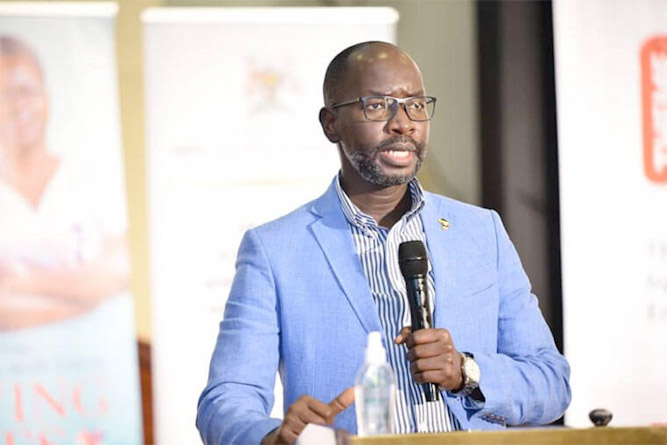Minister Obua Launches Uganda Energy Policy 2023
The Government Chief Whip, Denis Hamson Obua launched the Energy Policy for Uganda 2023 at the Sheraton Hotel Kampala on Wednesday, revealing the ambitious projected generation capacity of 52,000MW by 2040.

Obua, who represented the Prime Minister, Robinah Nabanja, underscored the importance of the new policy as a significant milestone for posterity.
“Today marks a significant milestone in our country’s history as we gather to launch the new Energy Policy that will shape the future of our country for the next generations to come,” said Obua
The Government Chief Whip emphasized the critical role energy plays in shaping the environment and the economy.
“Energy is the lifeblood of any nation, and this launch is being held at a critical time when nations are dealing with ensuring their energy security for socio-economic development,” he said.
Uganda’s rich mineral resources, as enumerated by Obua, include; hydropower (15,000 MW), biomass, solar (10,000 MW), geothermal (potential 1,500 MW), peat (800MW), wind (200 MW), uranium and fossil fuels.
“The sustainable development and utilization of these resources necessitates establishing transparent and well-balanced partnerships with key technology providers across the globe,” said Obua.
He revealed that Cabinet tailored the Energy Policy focusing on factors including the projected 2040 population and workforce of 73 million and 22.1 million, respectively.
“A large portion of this population will be youth who we must support to ensure their employability. Opportunities must be created to support the youth through Technical Vocational Education and Training (TVET),” he said.
Adding: “The projected 2040 generation capacity of 52,000MW is to support large infrastructure such as the Standard Gauge Railway, Oil refinery and Petrochemical industries, and emerging trends such as electric mobility that will require significant amounts of electricity.”
The ambitious energy plan is also meant to facilitate rural electrification for inclusive growth and poverty reduction, irrigation and mechanization to boost agriculture and food security, manufacturing, mining, education and healthcare.
By Namagembe Joweria


